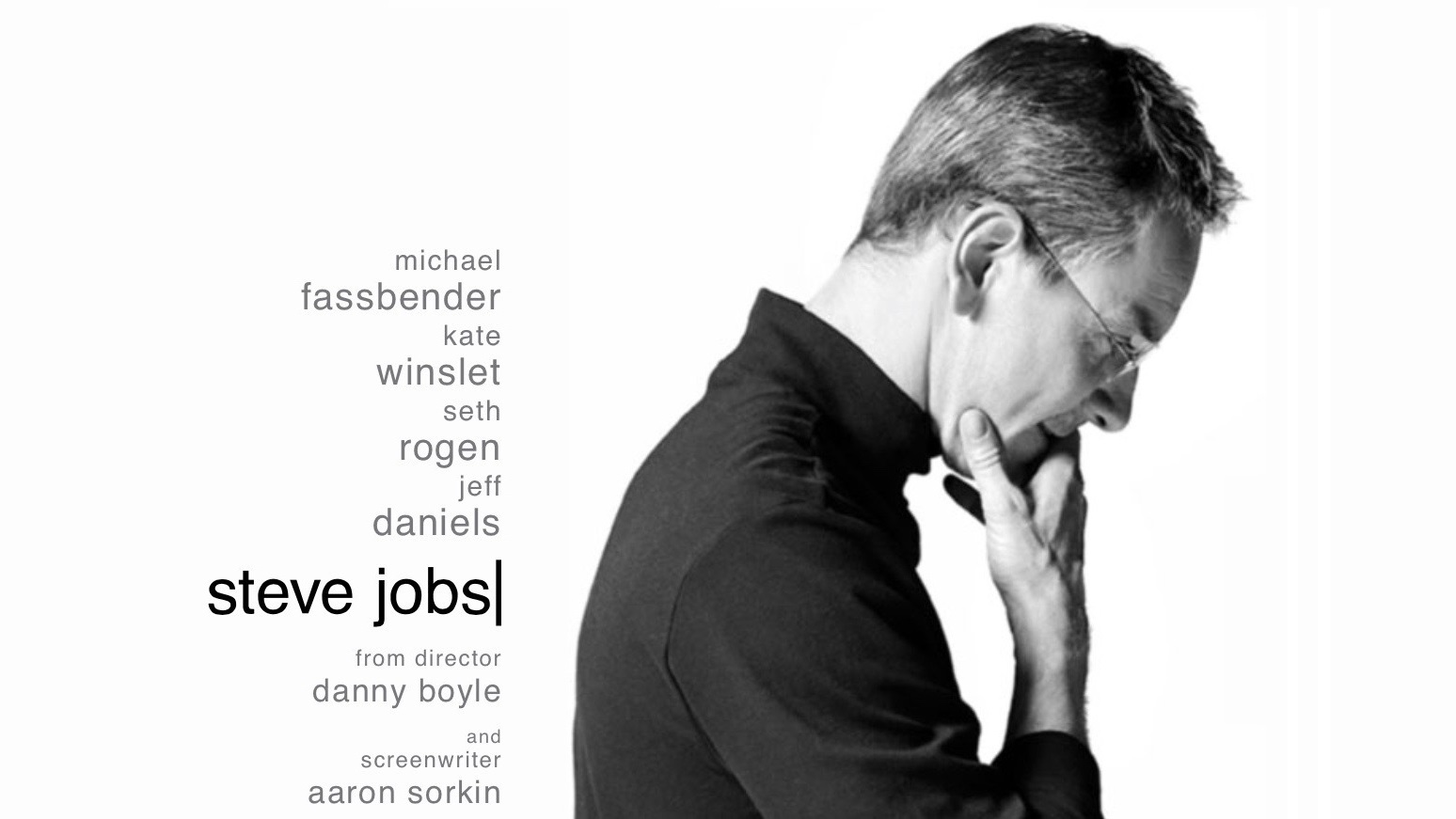Aaron Sorkin and "Steve Jobs"
About "Steve Jobs" and its writer Aaron Sorkin


Steve Jobs is a quarrel. A quarrel which has been invigorated by injecting energizing substances, has been made on the beat by the deletion of limbs and lags, and has been made retorting and without stumbling by researching and rewriting of the writer –Aaron Sorkin- and the actors’ work in rehearsal; it’s a dreamy quarrel. The narrator is captured by the two-sided pleasure of an imaginary quarrel; a pleasure due to anger and self-pity. An anger and a pity due to the entanglement of complexes. The complex of a kid who has been cast away by his parents and the superiority complex of a grown man over others. “Andy: a long time ago, you threatened me once –Steve: people are attracted to people with talent. People without that find it threatening. Maybe you should see a therapist. Certainly couldn’t hurt -I meant you literally threatened me” on one hand the superiority complex of Steve, on the other hand the complex of others who are indicating in his face this desire for superiority “Andy: this can’t be fixed in seconds. –Steve: You didn’t have seconds, you had three weeks. The universe was created in a third of that time –well, someday you’ll have to tell us how you did it” which causes the always by the side assistant of Steve to laugh. A laugh which is being stopped as she looks at Steve. It doesn’t matter that the narrator tries to create a distance between himself and Steve by putting in a scene which in it Steve, realizes that for so many years he has been wrong about a subject; that it is as if the narrator is standing on a higher place than Steve’s complex or complexes, and is pursuing to resolve them. It doesn’t matter because processing a complex through a quarrel which –with a good approximation- has covered the whole film, is assisting Steve in being entangled in complexes and it doesn’t let the narrator to go above and look at the inclusive image of life. An image including all the occurrences and the time periods between them. The narrator gives quarrel a credit which it doesn’t have. The breath of life, the passage of time and the distance between human beings, exhausts any quarrel, cools its fire and provides an opportunity for looking at the inclusive image and for surpassing complexes. It is possible to blow on this fire again and make it flaming, but in the long run, it is not possible to keep it flaming. The narrator in his manufactured quarrel deletes the distance in time and location in order to make the fervor constant, and the inclusive image flawed. Whereas the purpose is to revive this image in memory and to address to it. That is how Steve’s hair turning grey, becomes an unavoidable misfit patch. Neither it is being addressed nor is being used considerably. Because the narrator doesn’t leave himself a chance to look at the inclusive image. because he has decided to tell his imaginary story during the overcrowd and the hurry of the product lunch events:

Among all the incidents and relationships in the life of a man named “Steve Jobs”, Sorkin has made a selection, then by manipulating the reality of these incidents and relationships, he has reached to a narrative which represents his worldview and point of view. A point of view which in it, the limits of complexes has expanded so much that it doesn’t give the permission to look at the inclusive image.

Steve says this sentence and he is right. When everybody -with a good approximation- constantly talk and reveal what they really think as if they got drunk, then there is no place left for showing. The presence of a “film” director is in the gaps between sentences that becomes determinant. That empty gap is a kingdom for a film director to be godlike and create, and he makes sure that the sentences, provides the empty gaps that are required by his taste. Now, if the sentences become plentiful and their emotional content occupy the focal point, the work space of a film director becomes more and more narrow and being of little potential for adding to the scene’s content, he struggles not to be left behind by the sentences.


Novel is the extract of incidents and moments not their occurrence; it is the extraction of occurrence. Theater is the occurrence itself. But Cinema is a point of view of the occurrence (a distant, close, mobile, fixed, affront, et cetera point of view) and the transformation of points of view, in a single shot or multiple shots. A shot contains a point of view of the occurrence, but it has a fragile credit, because it contains talking elements. A series of moving pictures shapes a chain with a capability of being followed. Now, if each picture –in harmony with other pictures- builds a specific structure, it can be elevated into a point of view that has the worldview of the narrator behind it; a point of view that the ambiguity which leads into exploration, is in its nature. Now if the sentences become plentiful and their emotional content occupies the focus point, the obvious factor (sentences) reduces the ambiguous factor (pictures) to a follower. Because with the presence of the obvious factor, the stimulus for exploring in the ambiguity is being cooled and pictures -as a secondary factor- are being repelled. While sentences themselves must add to the ambiguity and motivate the stimulus for exploring.

Plentifulness of sentences is not necessarily wrong, although it can cause disruption to how the audiences follow a film, due to the difference in language. But making the sentences and their emotional content the focal point, is a deadly sin.




